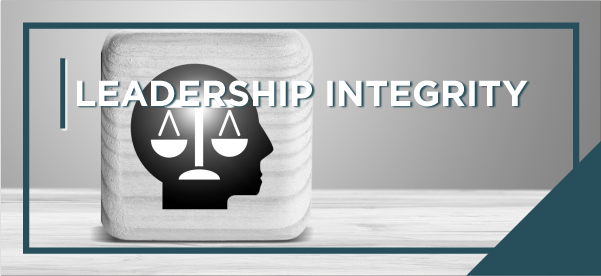During a group learning meeting as part of our 6-week-long Performance Experiment / 42-Day Challenge program, a participant shared appreciation for the vast amount of content and materials we offer at Emergent. He then suggested that a subject area which we may not be covering enough is leadership integrity.
His intent wasn’t to expose a void in our content but rather to express the fundamental importance of integrity for leaders … and I could not agree more!
Unfortunately, many of us have worked with a leader (or co-worker) whose integrity we questioned. Some may have even left jobs or organizations because of a lack of integrity, while others may be currently in a similar situation, waiting it out, hoping for the best. And while we may not be able to impact or control the integrity – or lack thereof – in others, we can impact and control our own.
First, a definition: Integrity is the level at which or the way in which you adhere to a set of principles and can be trusted.
Perhaps the ambiguity of “set of principles” is why we’ve not addressed the topic in this space to a large degree; more likely, it’s because we assume the leaders we’re working with already have a high level of integrity and we’d be “preaching to the choir.” For whatever reason, I am thankful to have been made aware of this opportunity in our work and I look forward to podcasting and writing more in this space. For now, let’s consider this:
- Others give your power to you as a leader because you are trusted and full of integrity.
- Trustworthiness becomes one of the most obvious testaments of integrity, as does being truthful, honest and sincere.
- If we’ve missed an opportunity, redemption may be available but requires work.
Behaving in ways that lack integrity includes, of course, the opposite of honesty and truth. Liars are obviously not operating with integrity! However, the more subtle and sometimes misunderstood behaviors that erode integrity are worth mentioning. Here are a few questions you can ask to test the possibility of integrity blind spots for yourself:
- Do you behave in ways that go against the values you espouse and communicate to others?
- Do you fail to operate within the same standards and expectations you hold for others?
- Are you trying to please too many people who hold opposing views, agendas or goals?
- Are you unwilling to admit your errors?
- Do people know what you stand for, and when the time comes, do you stand for them?
If you’ve answered “yes” or “sometimes” to any of the above questions, you may want to take a clean look at your performance as a leader and work to rectify your behaviors. Ask those whom you trust to comment on your self-evaluation to see what guidance they may offer.
You may also consider hiring a coach, who can be impartial and confidential, to assist you in your leadership development and/or integrity evaluation. Contact me at [email protected] to get started!

Comments (0)